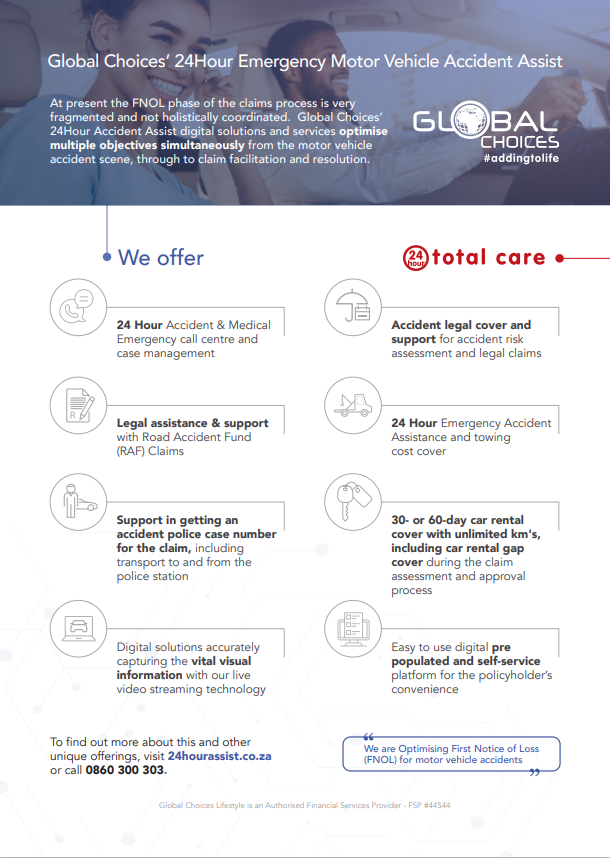Wimpie van Der Merwe (CEO, Global Choices)
“You can’t connect the dots looking forward; you can only connect them looking backwards. So you have to trust that the dots will somehow connect in your future.”

– Steve Jobs
As I interpret this quote, it can be hard to trust the process when you can’t see the bigger picture. But you never know what might be around the corner, so you must keep moving forward. You may recognise that some of the difficult things you’ve been through or the tough choices you have made were also the best things that you may ever experience.
The fundamentals of human nature haven’t changed over time. This means the central dispositions and characteristics of our ways of thinking, feeling, acting, and showing empathy have remained the same. We are all searching for the meaning of life, for purpose, and we all mark and measure our life according to our experiences. Over our lifetime we record and document these experiences as stories, the same as our ancient ancestors did on cave walls; only now we’re doing it in a more advanced way – on virtual social media walls.
The effects of technology
Technology is transforming our world rapidly. It is revolutionising our working environments and creating new and exciting opportunities for companies and society as our physical, digital, and biological worlds merge. These ever-evolving changes cause blurred lines between humans and technology, which are causing new underlying uncertainties, frustrations, anger, and stresses.
This complex transformation in society, technology and employment creates rising levels of anxiety, unhappiness, discontent, insecurity, and loneliness. We are entering an era of anger and frustration that is increasing daily as empathy levels decline. This unfamiliar environment of growing division and an angry population can lead new risks arising – war, populism, volatile electoral results – and reduce the chances of solving multi-stakeholder global challenges such as global warming.
If empathy levels continue to decline, the risks might grow even bigger. To help mitigate consequences of the behaviours created by technology, companies can take steps to improve and monitor mental health and wellbeing in the workplace. It is important for insurance industry leadership to recognise the importance of mental health and empathy internally so that it manifests in a healthy employee culture and, by extension, a healthy society.
The importance of the human touch at the centre of customer experience
Customer-centricity starts at the top, with a clear empathetic purpose that permeates through every employee level and motivates individuals. This purpose translates into the right structures, products, and services to enable technology.
Your employees are the first people to interact with customers. They are the ones who initially observe customers’ concerns, or what delights them, before the sum of all their observations becomes a data pattern on a company system. A healthy employee environment thus directly affects customer experience. Insurers that lag in customer experience share a common mistake – failing to put the employee at the centre of the equation. They usually depend on the structures of a customer service systems, metrics, and feedback systems to provide the guidance that people need.
Without employees who are inspired and equipped to put the customer first, these structures become more of a hindrance than a help. Empathy is essential to ensure awareness of people’s feelings. This awareness can then be channelled into developing strong inter-personal connections. Empathetic employees, without exception, are experts at being intuitive about customers’ discomfort and acting on it.
Most successful employees are intuitive. They see what customers need before customers themselves do. These empathetic employees are continuously aware; they ask questions around how to solve or improve the customer experience.
Empathy is a two-way street built on mutual understanding. It is an exchange of our most important beliefs and experiences. Now more than ever, customer experience depends on the human factor as we experience a global decline in empathy levels.
Empathy drives your customer experience success
Successful customer experience is the design practice that’s used to make sure that your customers’ interactions exceed their expectations. This leads to greater customer satisfaction and loyalty. When insurers show that they understand what their customers are going through, their customers are more likely to feel a stronger emotional connection with them. Delivering an empathetic customer experience will have a huge impact on attracting and retaining policyholders in the future. Empathy might be the most underappreciated competence in business. One big problem with corporate innovation is that it is increasingly data-led rather than human-led. Companies are too quick to reduce customers to Excel spread sheets, statistical segments or ciphers of data.
We lose touch with the people for whom we’re innovating, and we stop caring. And when we stop caring, the domino effect leads to a decline in sales and growth. To offset this, we need an injection of humanity and caring. This means becoming an empathetic organisation that uses technology as part of a total experience strategy to delight clients, simplify touch points, humanise data and streamline engagements with our customers.


